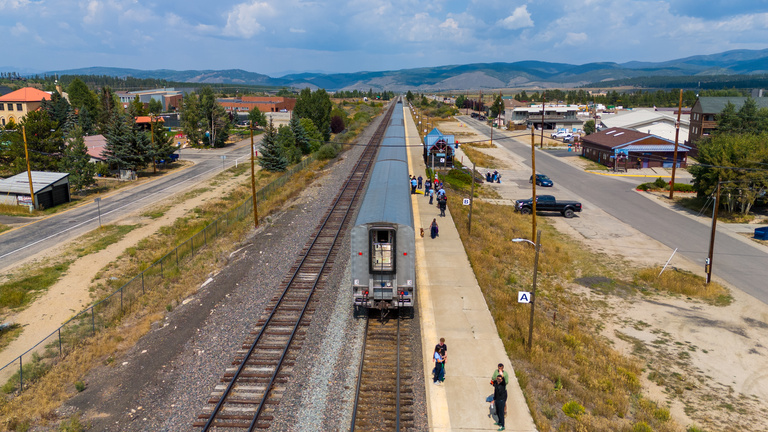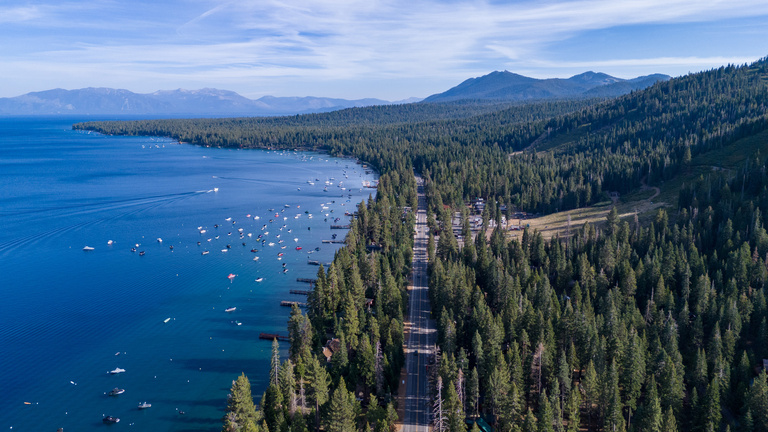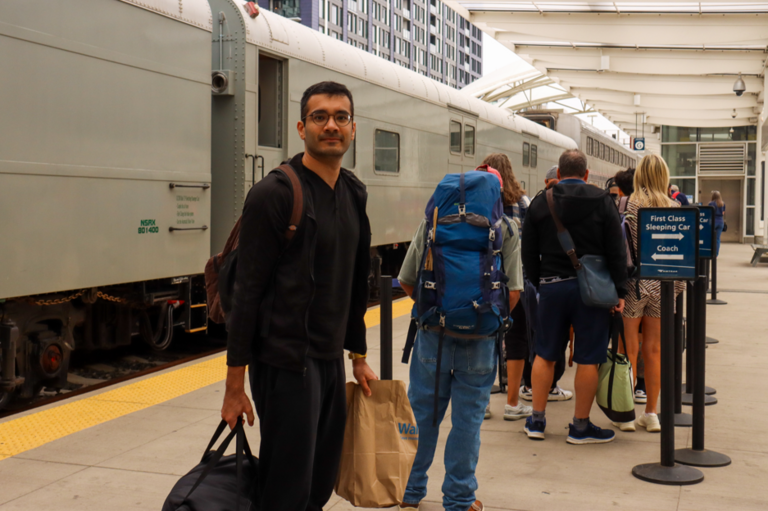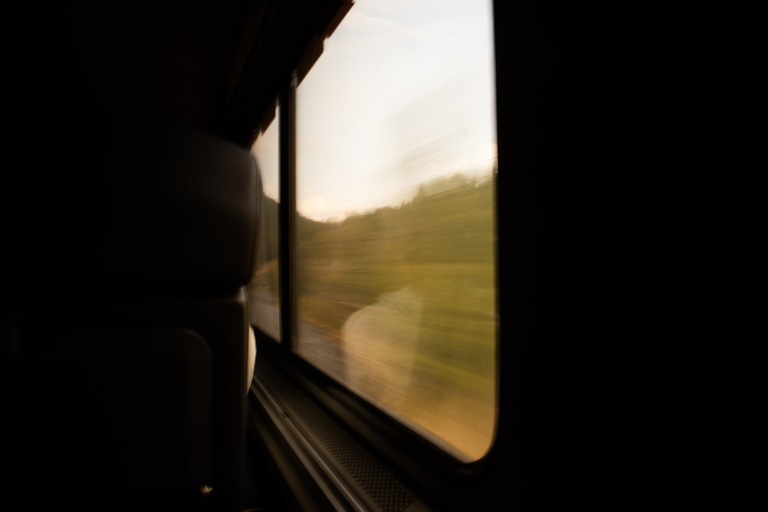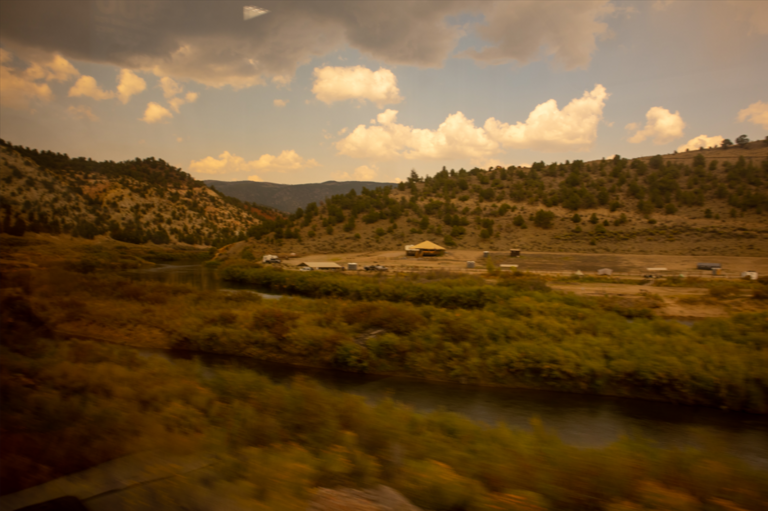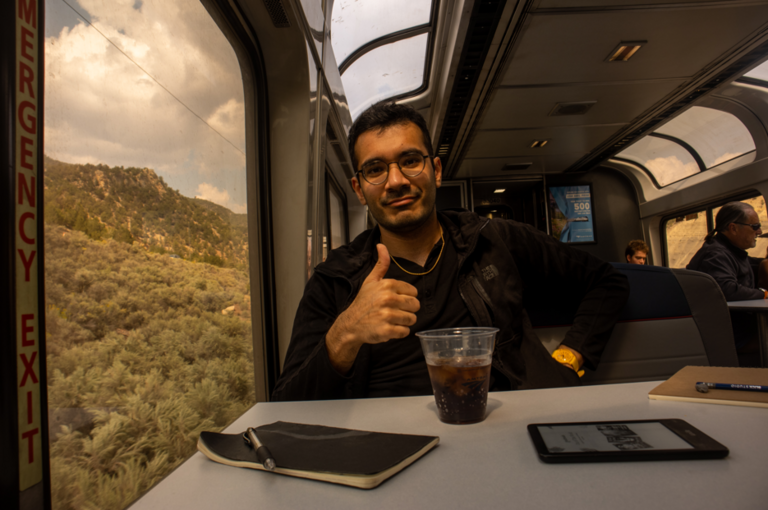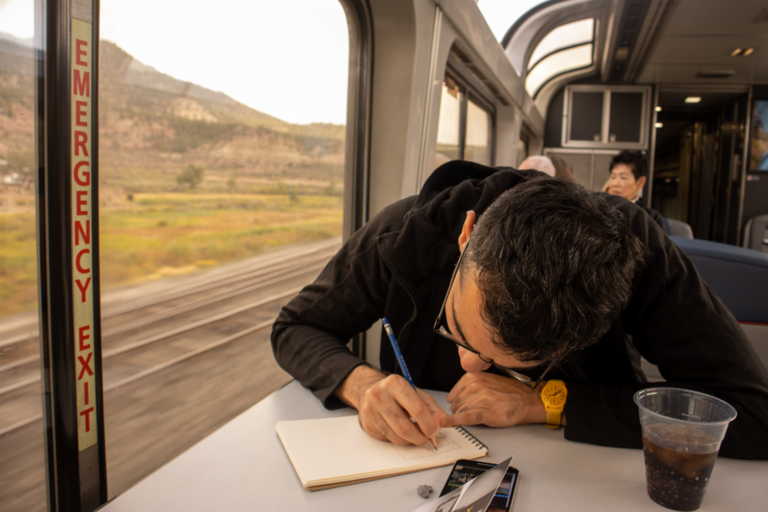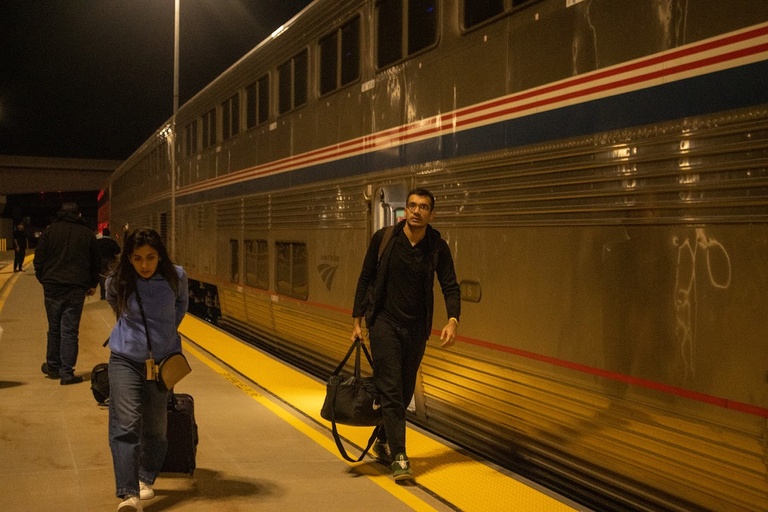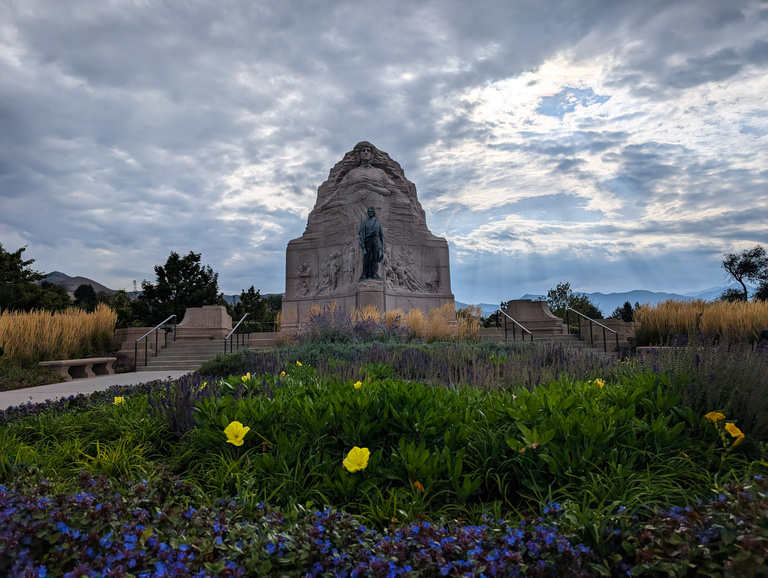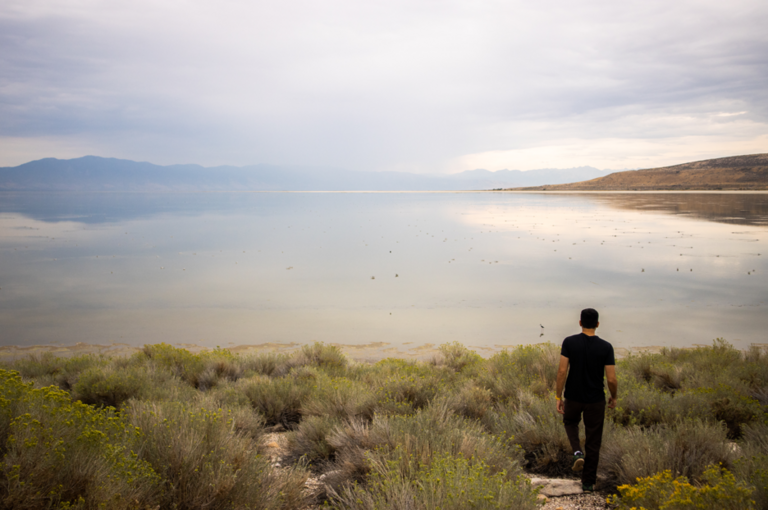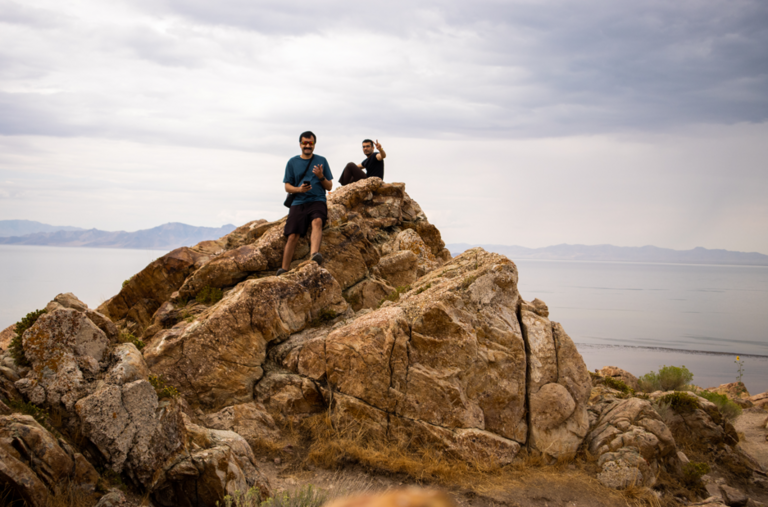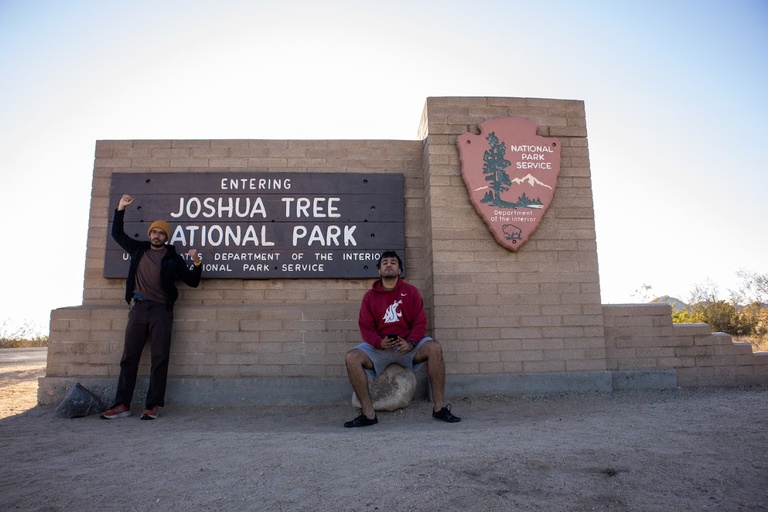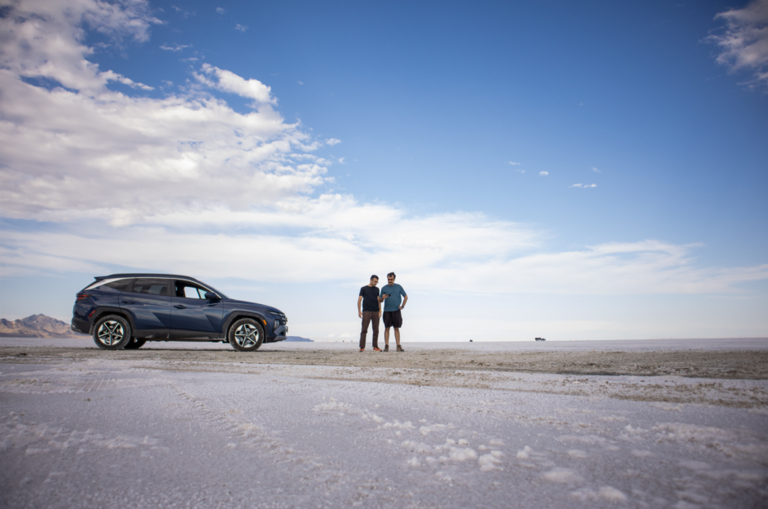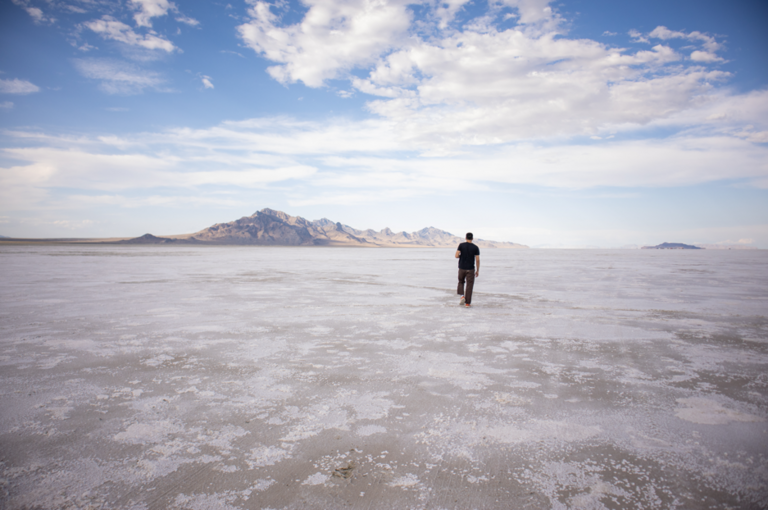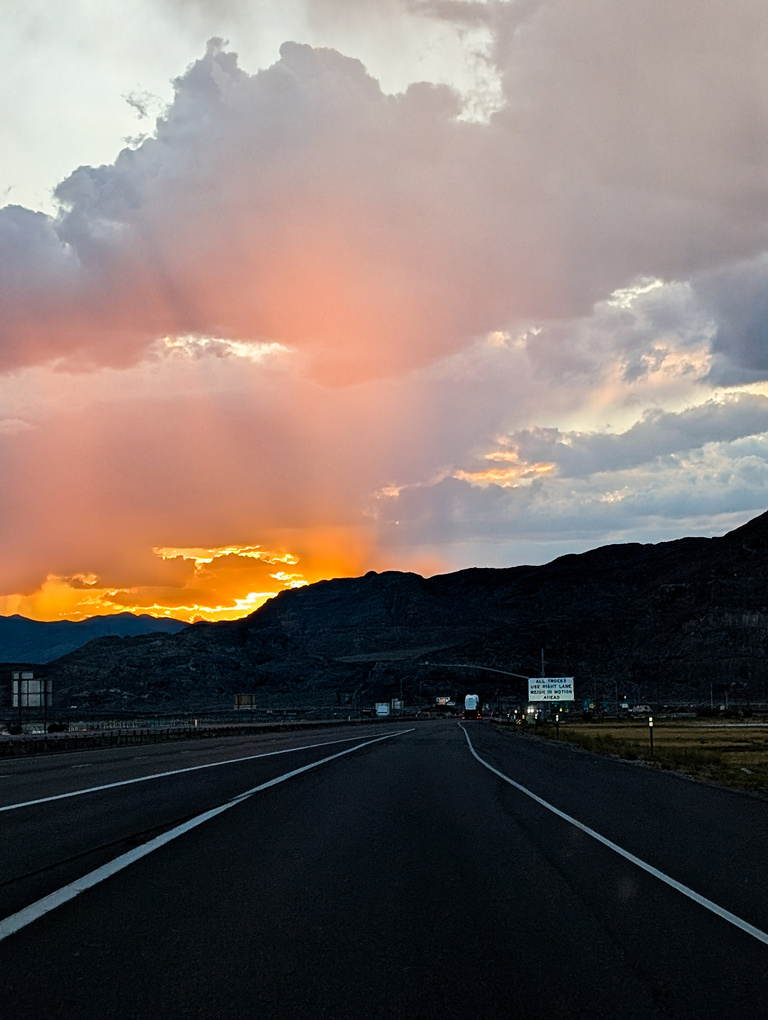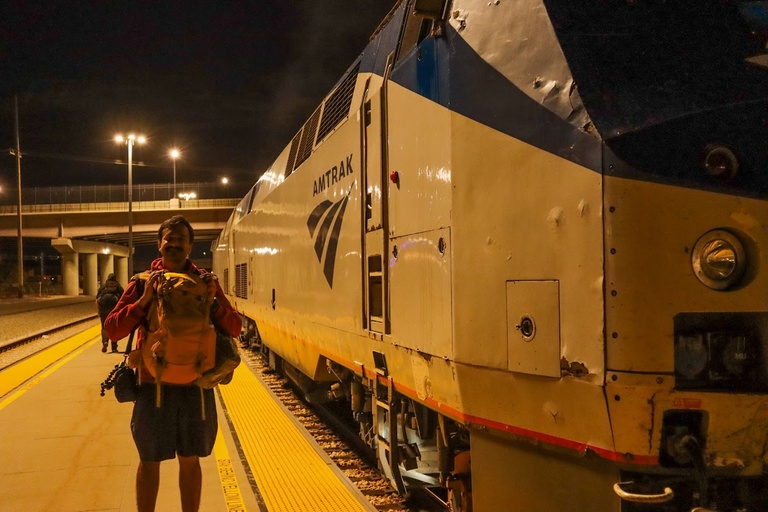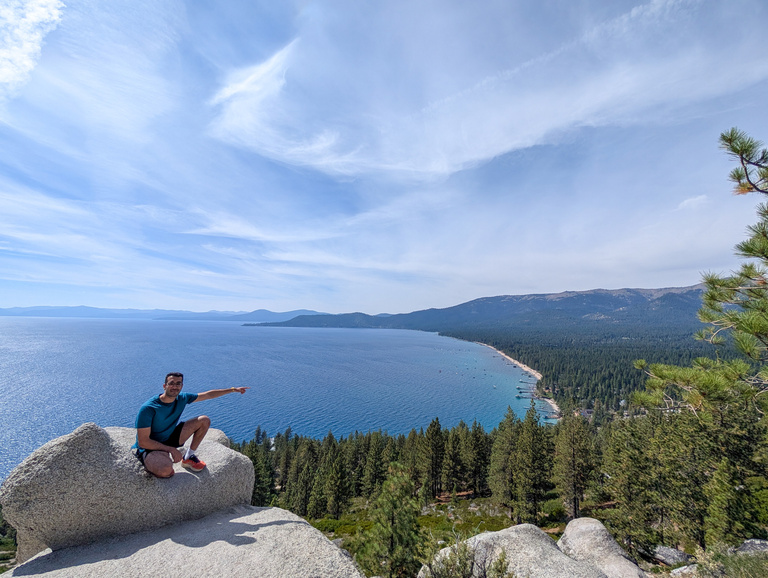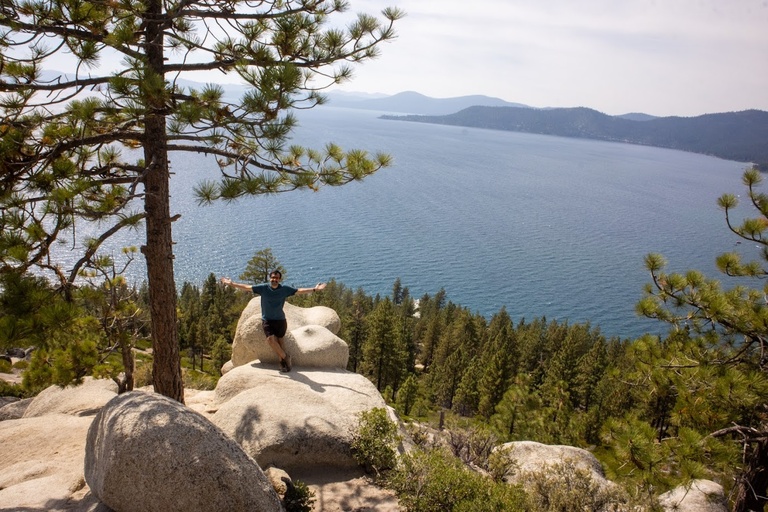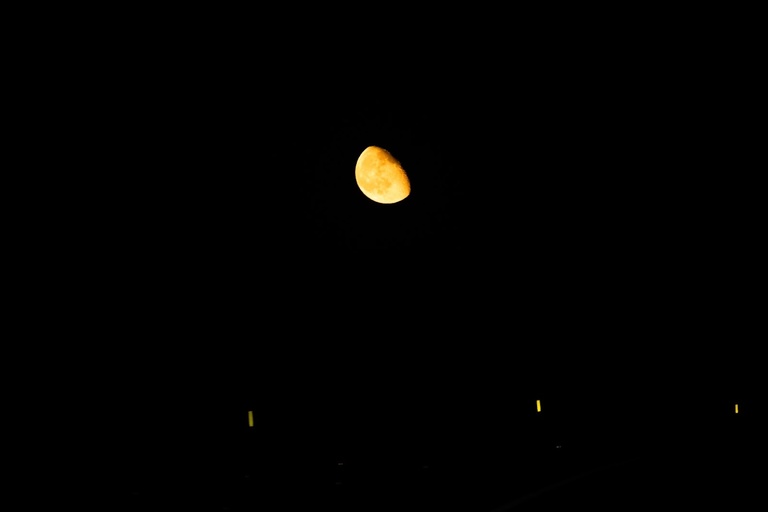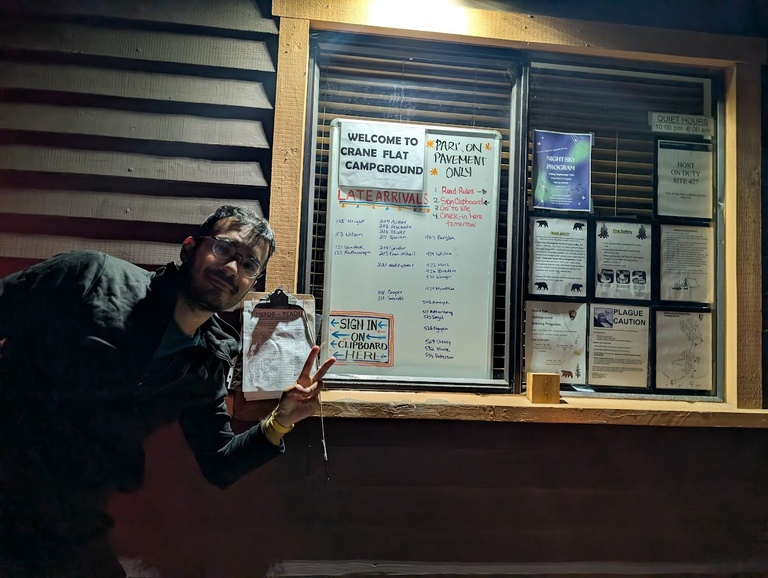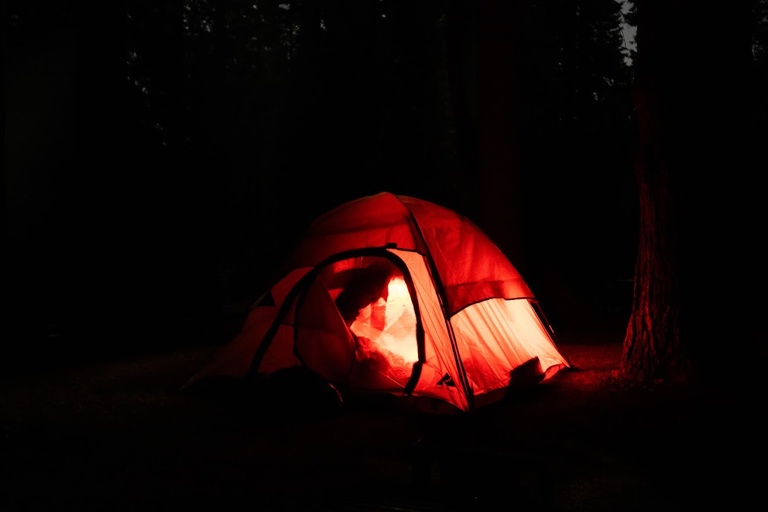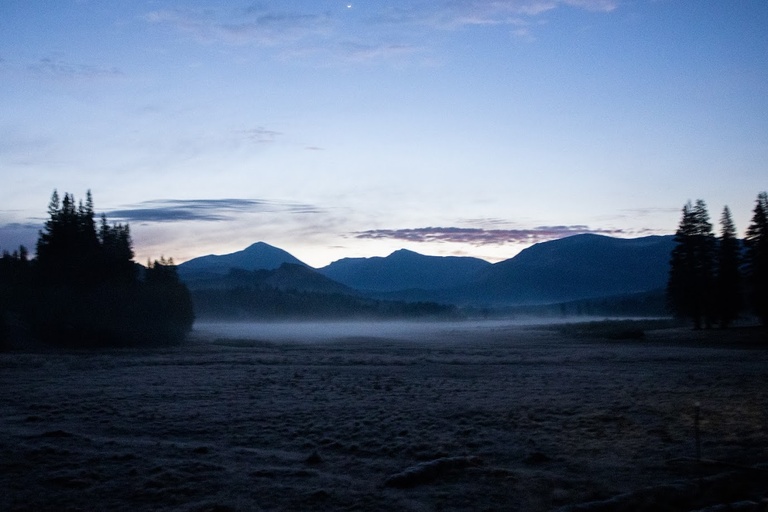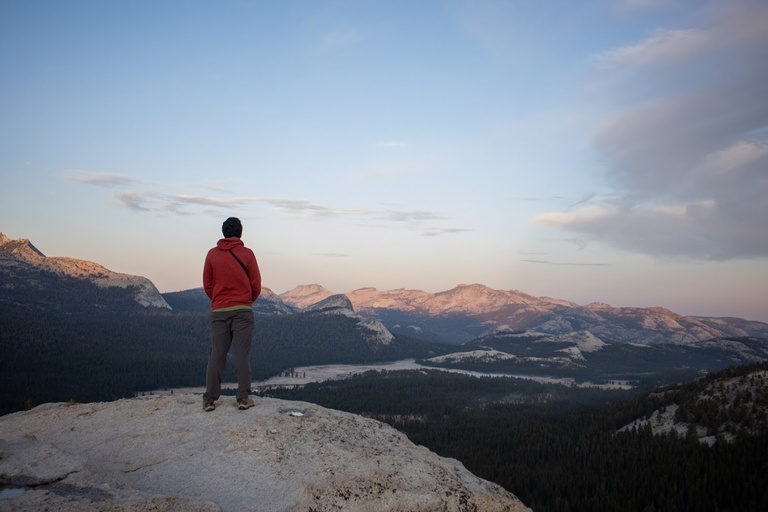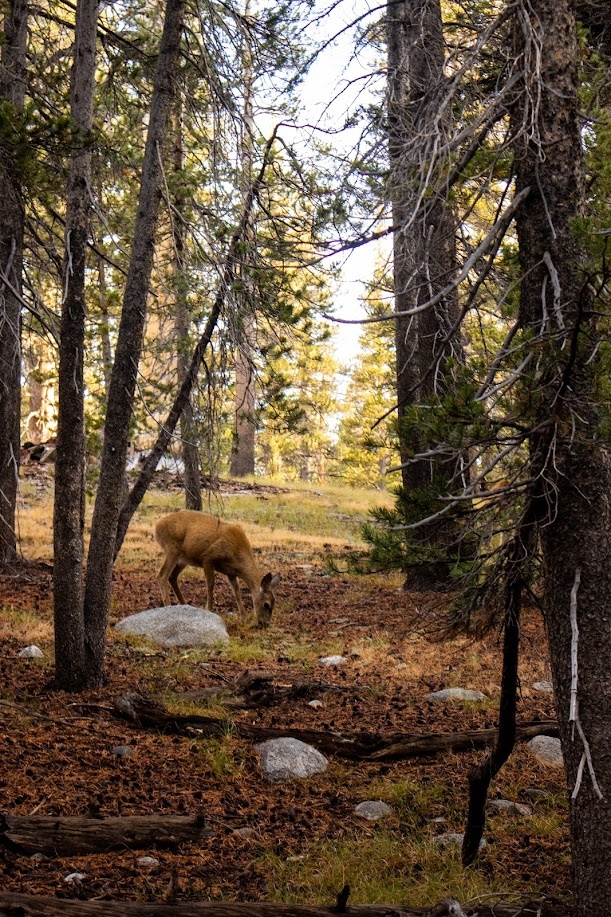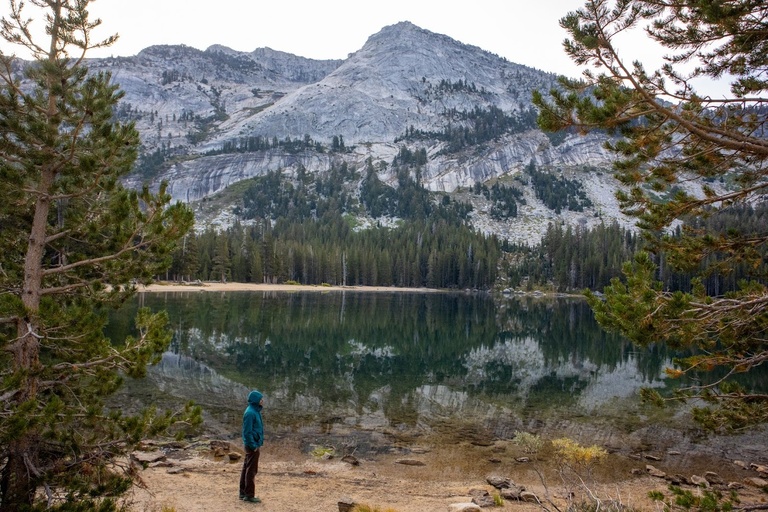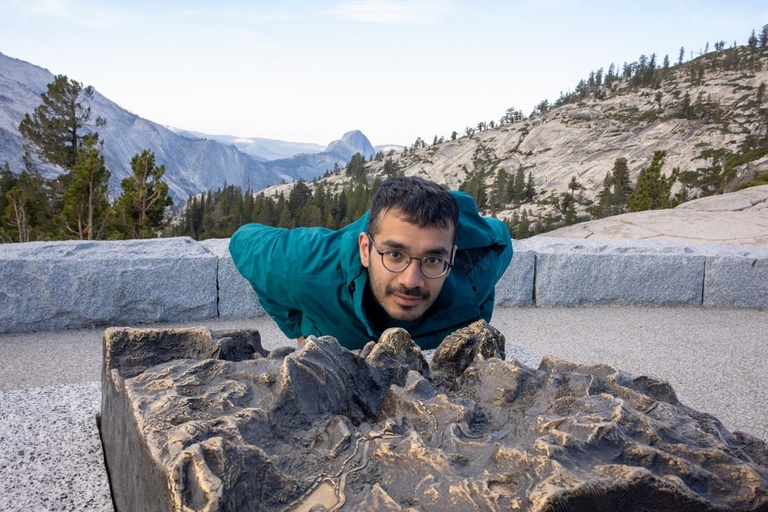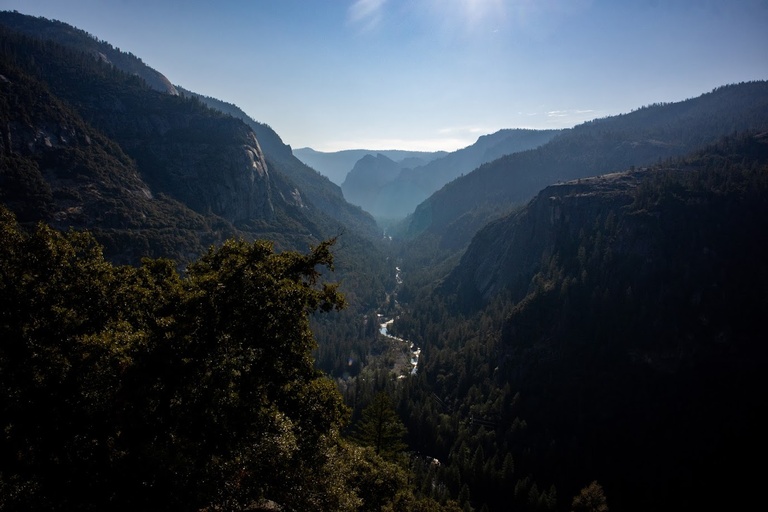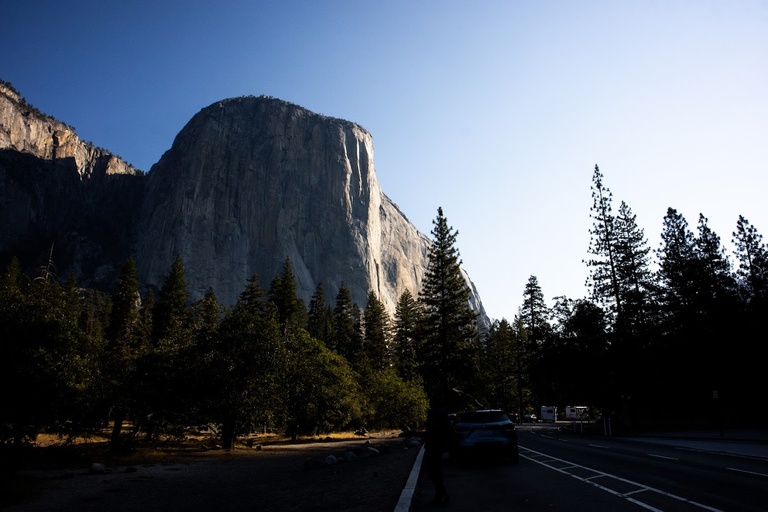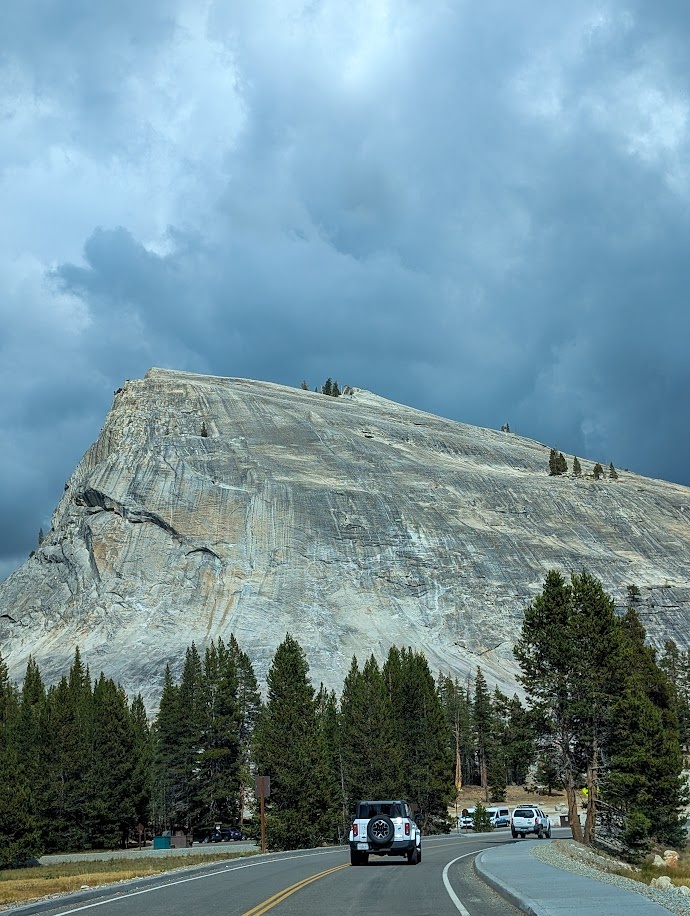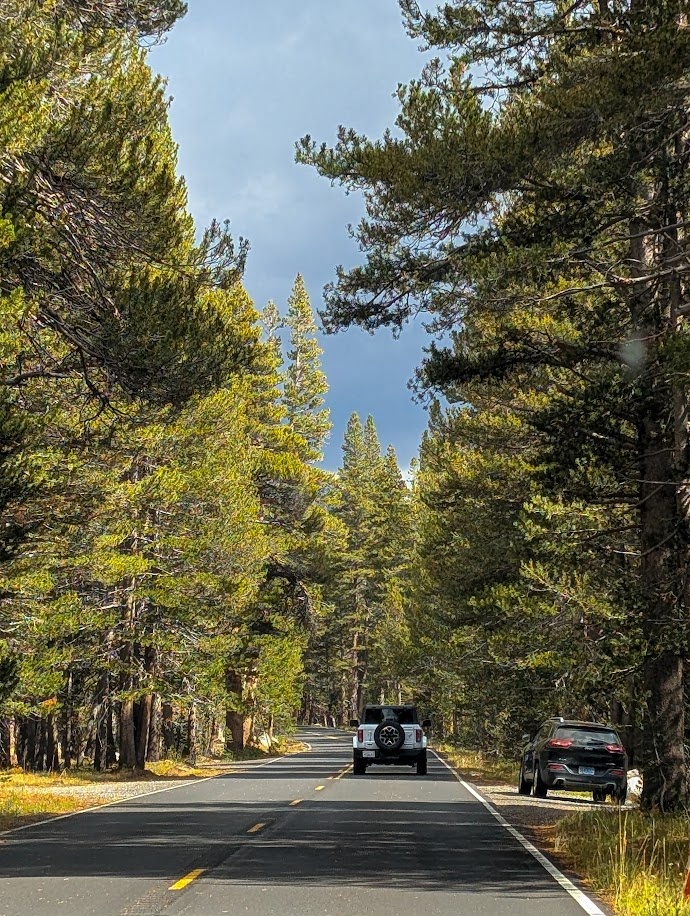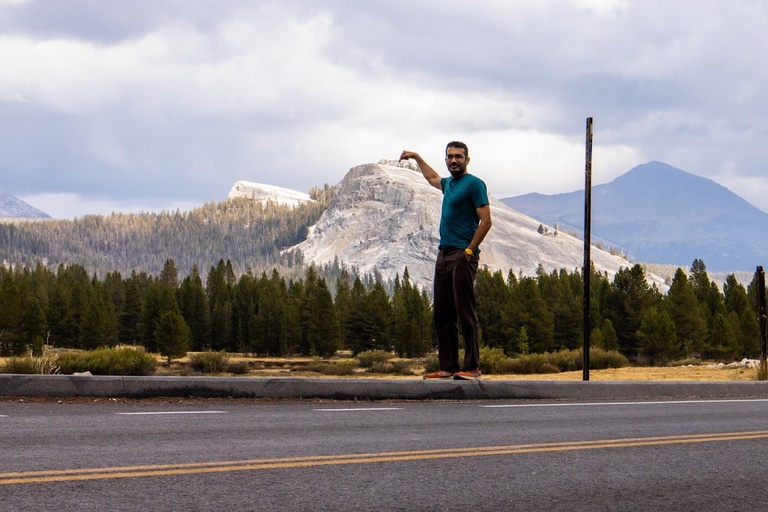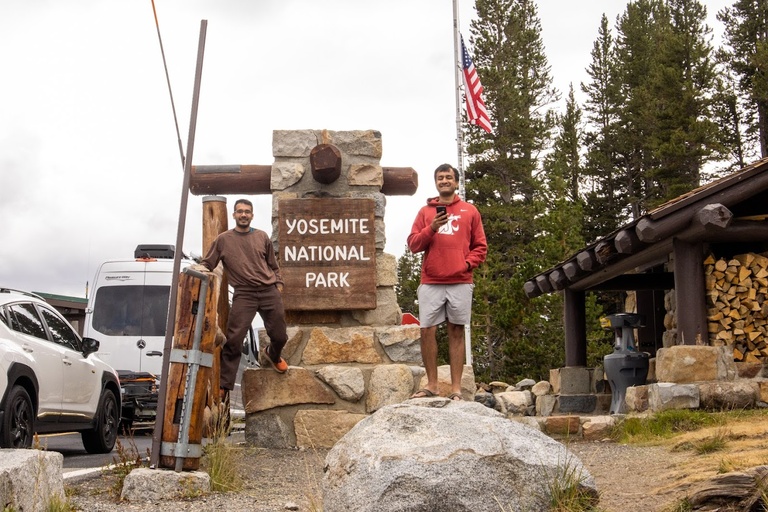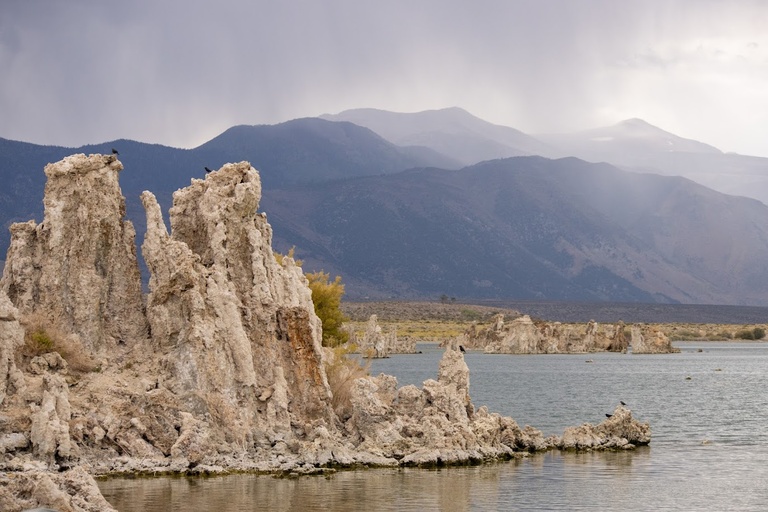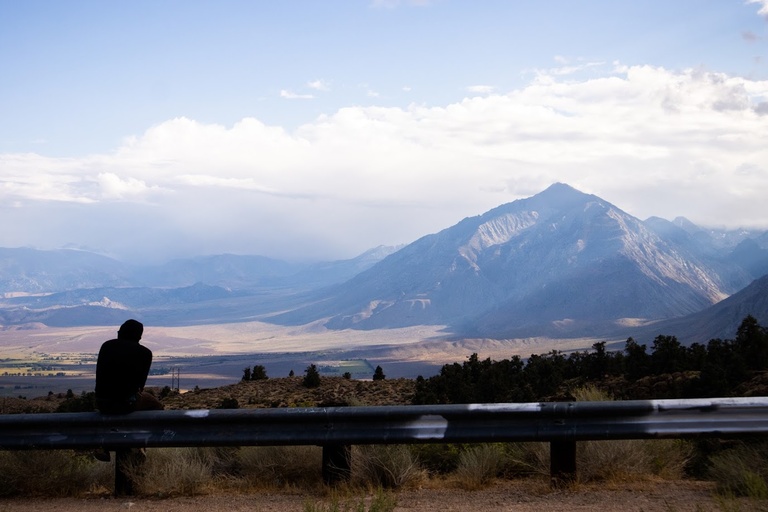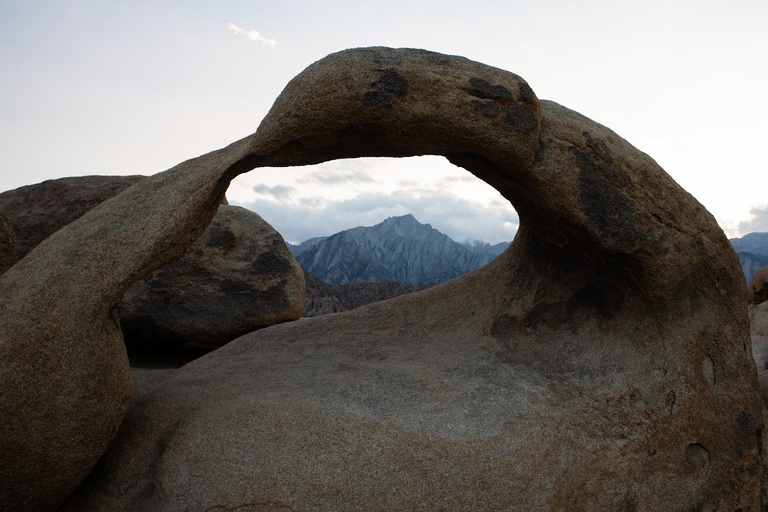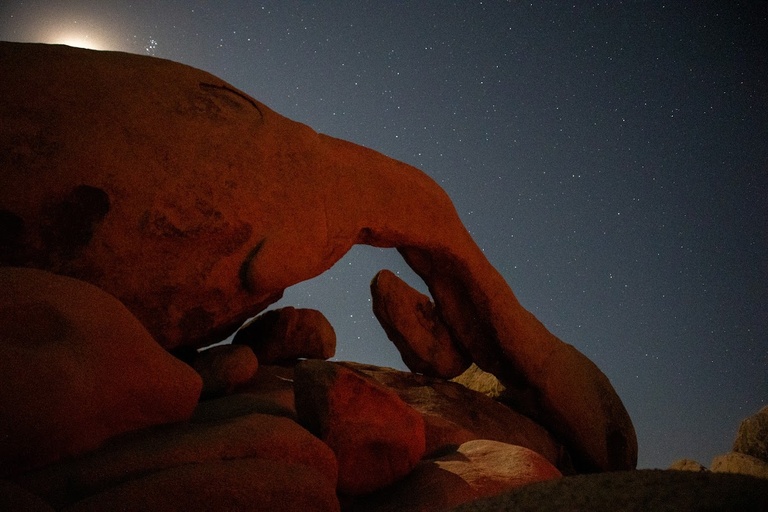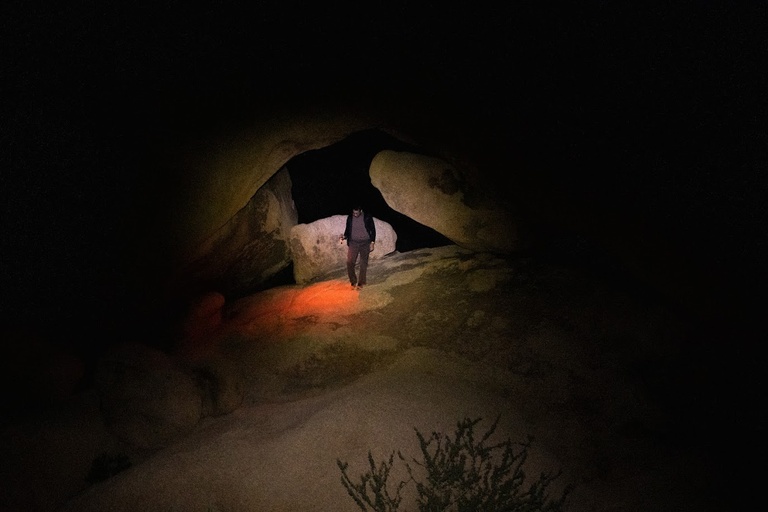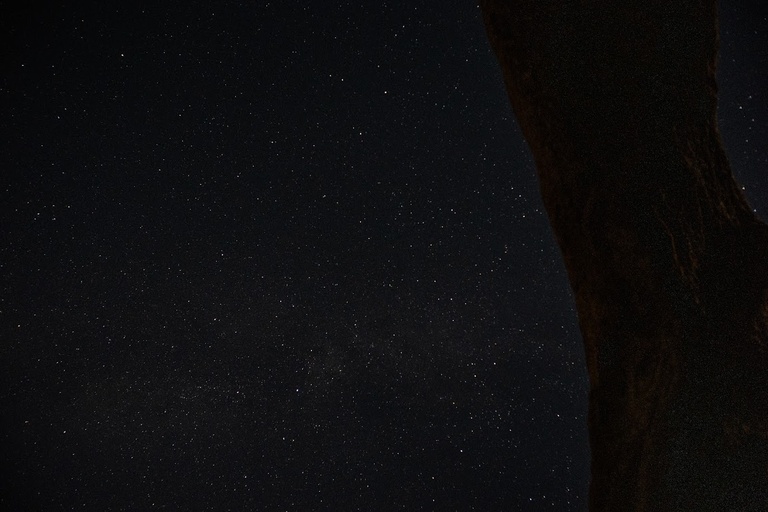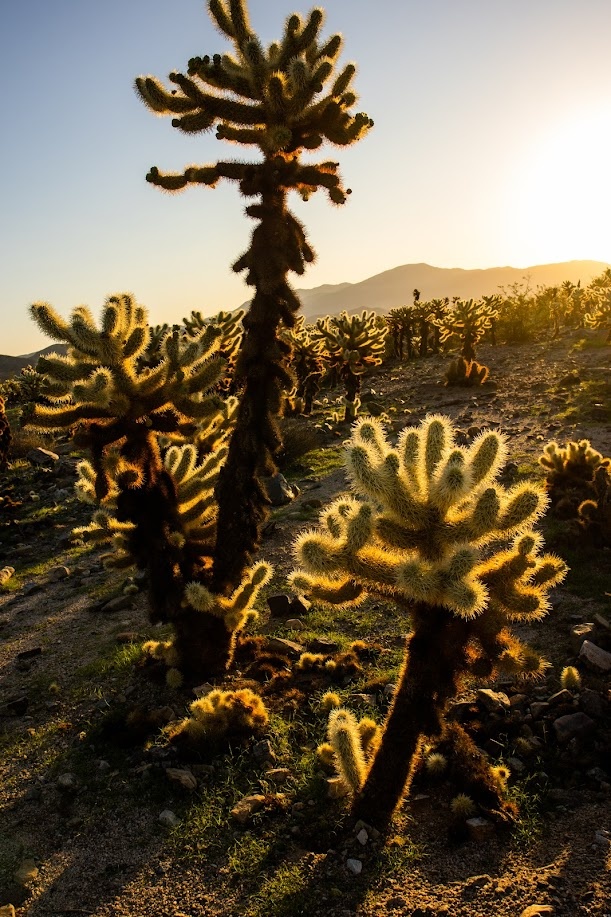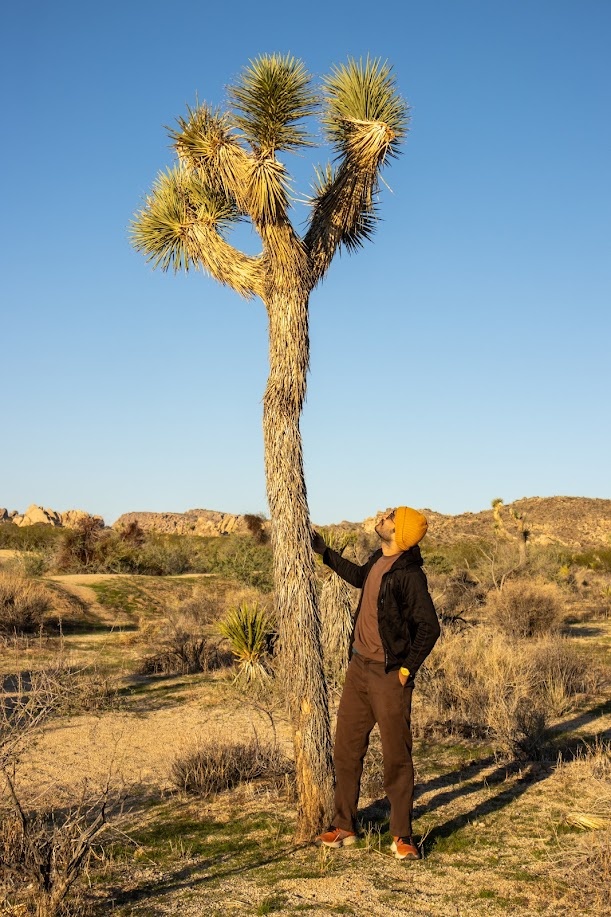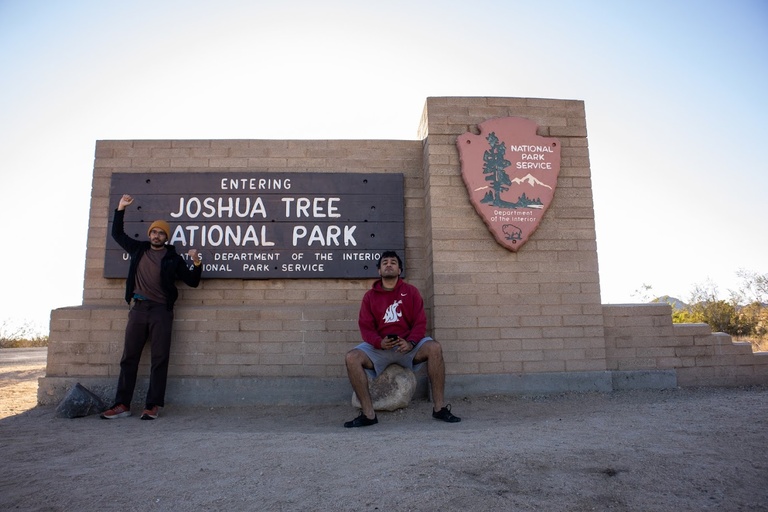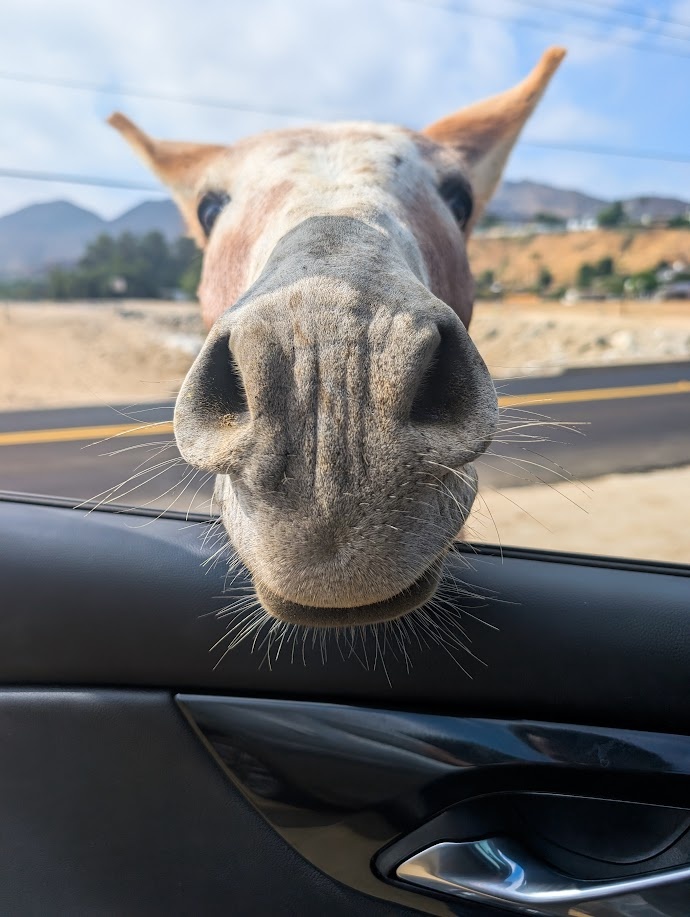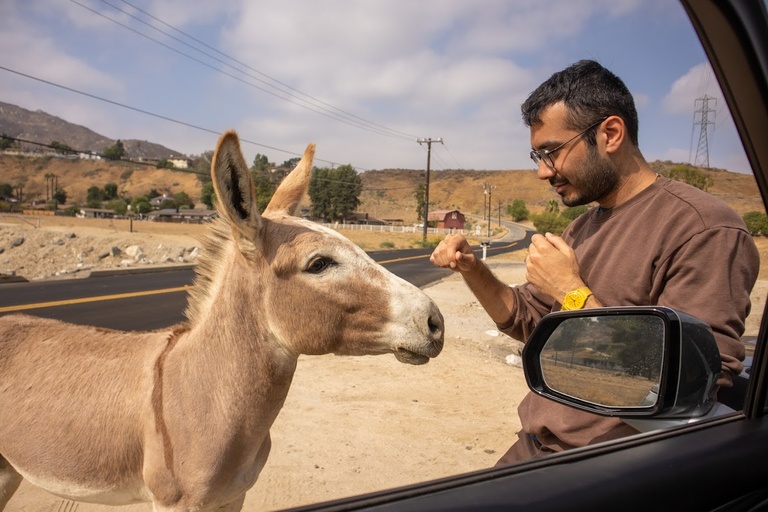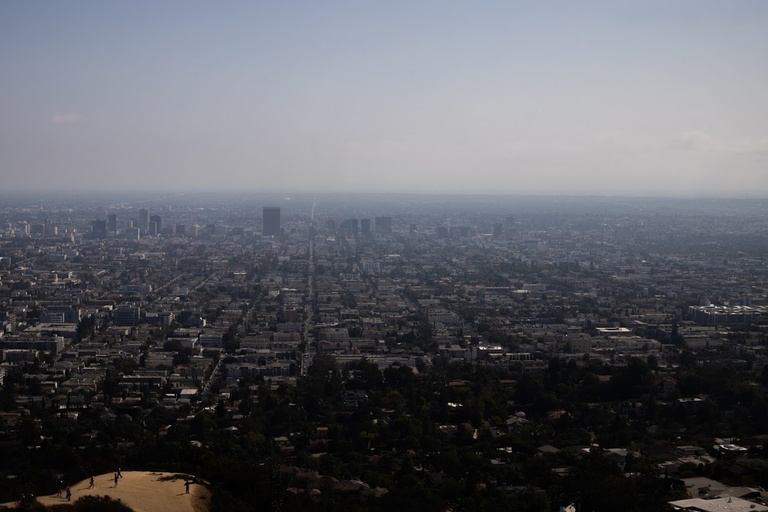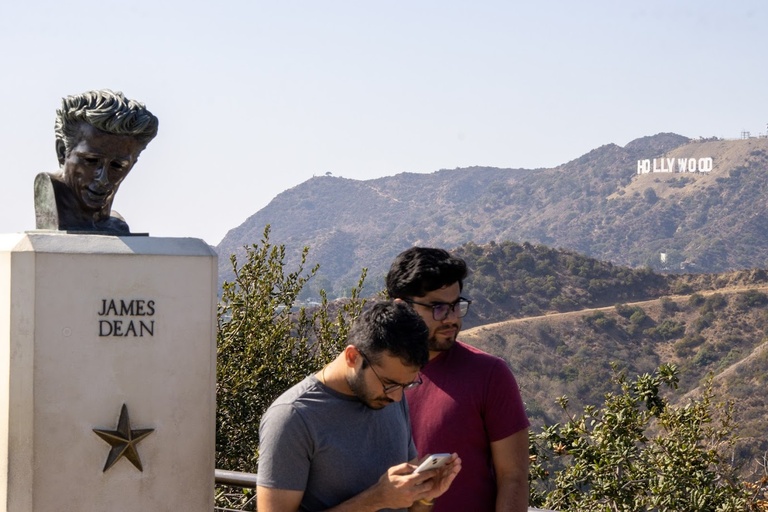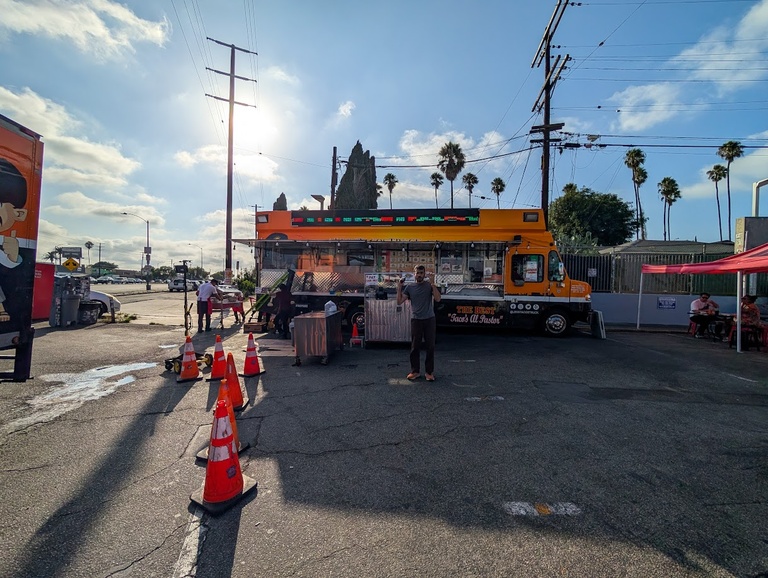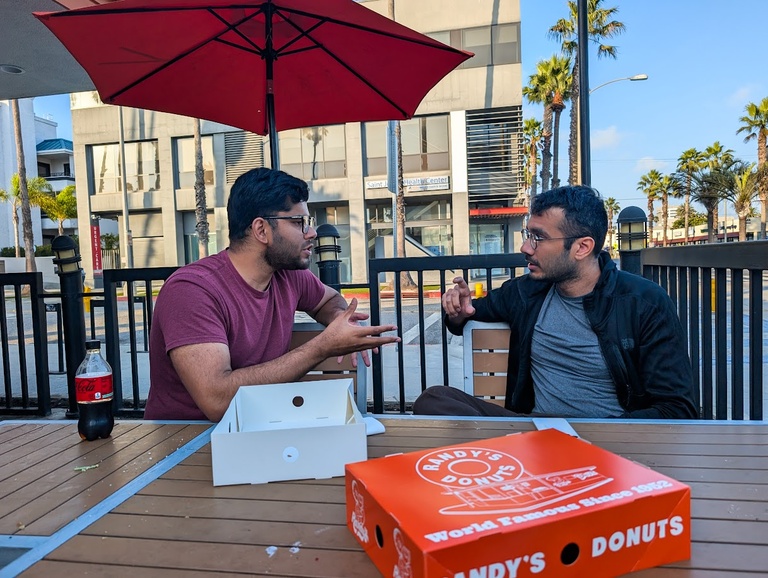
Alumni Hussam Habib (PhD CS '25) and Osama Khalid (PhD CS '24) make their way by train to Yosemite and the Rockies as a big hurrah trip for Habib as he'll be moving to Austria soon.


What inspired you to go on this country trip across the U.S.?
Khalid: I still remember the first time the idea of traveling across the U.S. by train resonated with me. I had read an article about Mike Brodie, the “Polaroid Kidd”, who journeyed through the US on freight trains, documenting his experience with a Polaroid camera. As someone who has always been chronically restless, travel and photography have long been my escape.
This restlessness intensified during my PhD. Research can be deeply fulfilling, but it can also feel suffocating. Traveling, and physical activity in general, became my necessary release. This restlessness and the need for escape has continued with me and has permeated into my professional life as well.
Back in my PhD Iowa City (and the midwest in general) was the cage that I was trying to leave. I would try to get away every chance I would get. From buying a car in Florida just so I have an excuse to drive it back to participating in RAGBRAI 2024 to driving to California (twice in one year). I biked through countryside roads, ran along highways, even kayaked in rivers and seas. I've embraced whatever mode was available as long as it took me anywhere. I have moved away from Iowa, however, this wanderlust has still persisted.
Of all the ways to travel, though, there's something particularly romantic about train journeys. If flying is about getting from Point A to Point B as quickly as possible, then taking the train is about savoring everything in between.
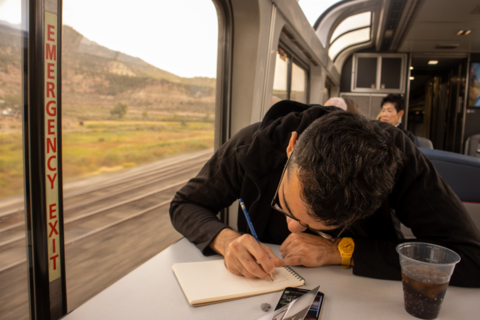
In almost every country I’ve visited or lived in, I’ve tried to travel through it by rail, from the Ella Odyssey train winding through Sri Lanka’s tea country, to the Southern Fuegian Railway at the southern tip of Argentina, to the crowded, chaotic, and lively Shalimar Express of Pakistan. All of those trips could have been quick flights, but I would have retained no genuine memory of them.
Even in the U.S., I’ve made it a point to take trains whenever possible. It’s a piecemeal adventure, but through it, I’ve seen the prairies of the Dakotas and the rugged wilderness of Montana aboard Amtrak’s Empire Builder, as well as the bustling, coastal towns of the Northeast on the Acela. So when Hussam suggested taking the California Zephyr through the Rockies, I jumped on board, literally and metaphorically.
What was it like traveling by train most of the trip?
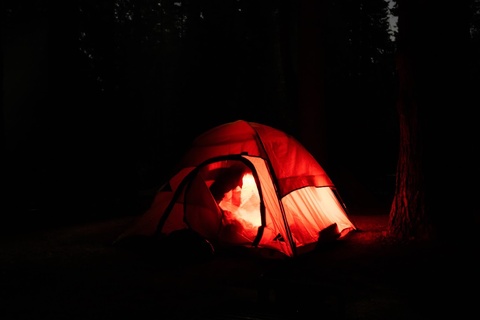
Khalid: Our travel via train was an extremely social experience. For me, it was a microcosm of the larger American experience. We had the pleasure of meeting all kinds of people, including summer camp counselors from Germany and Colombia taking a detour before heading back home, retired couples using the trip as a leisurely vacation, and workers commuting between distant towns.
But we also saw a harsher side of America. The physical layout of the train carriages felt like a stark reflection of the economic inequity and class divide of America as a whole. The less well-off passengers (like us, the workers, the camp counselors) were both symbolically as well as physically separated from the more well-off patrons of the sleeper cars by the dining car. The dining car became our social hub, where these different worlds would temporarily merge over shared meals.
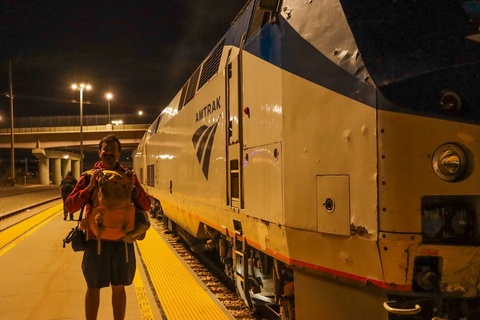
A stop at Grand Junction, Colorado, illustrated this duality. We watched as police were called to arrest an unhoused passenger. A visceral reminder of how society treats its most vulnerable. The contrast was striking: here we were, the passenger class, in our train cars checking our watches and fretting about delays. None of us spoke up or intervened while just outside the window, the state machinery of exclusion functioned with indifferent brutality.
What struck me most about the trip was the way the train condensed so many sides of America into one continuous line of track. You see its generosity and unprecedented beauty, contrasted with the brutality of an increasingly punitive state.
Where was your favorite location you visited?
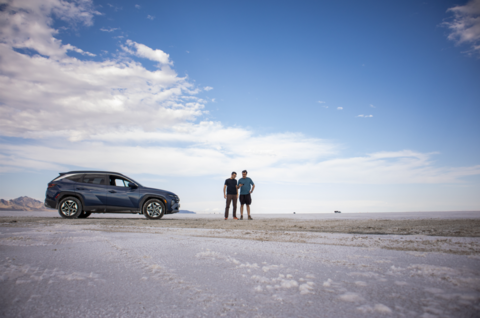
Khalid: I think the beauty of slow travel is that you get to experience and appreciate every place you go to. Both sides of the Rockies with Denver on the east and Salt Lake City on the west, had a unique energy to them. Even with our short stays, both Denver and Salt Lake City pulsed with an infectious energy where people seemed genuinely engaged in living and enjoying life. Both cities make the outdoors quite accessible. This meant that in Salt Lake City, we simply hopped off the train for the day and went to see the Great Salt Lake, the bison of Antelope Island, and the salt flats.
The same can be said about Reno, NV. Going into Reno, we were expecting a facsimile of Las Vegas, yet it had a unique vibrancy that set it apart. While it definitely had a different vibe than the cities in the Mountain West, it made up for it with its food scene.
Were there any challenges on your trip?
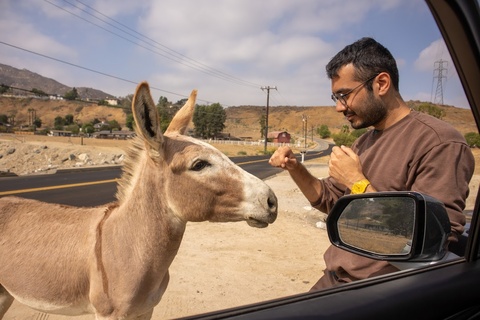
Khalid: I think all the challenges were of our own making! I don't consider myself or my fellow traveler, Hussam, to be particularly good at planning or micromanaging. Although we didn't have fixed plans, we had vague outlines. That meant trying to figure out the logistics on the fly.
The only vague plan we had was: "We will get off in the major cities and get back on the next day." We had no idea where we were staying or how we were traveling around. This was a double-edged sword. On one hand, we weren't tied to any particular commitment or booking, so we were never anxious about being late or missing a bus/train. On the other hand, we were always scrambling to find accommodation (which did mean having some questionable living arrangements in extremely seedy motels, but that is just part of the package!). I think having a positive outlook and sense of humor really helped us all the way through.
Although this was a personal trip and not academia, were there any overlap with your CS skills and interests?
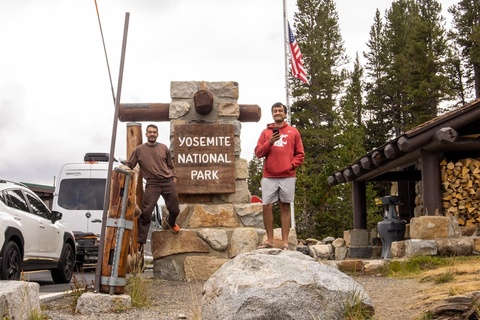
Khalid: I have always found that travel for its own sake is liberating and helps give me new focus. This effect is always compounded when I travel with Hussam. Back in grad school and even now, Hussam and I work in similar domains but have extremely different approaches. The inside-joke is that we have a supply-and-demand relationship: my work creates problems, and Hussam studies them (Context: I work at Youtube, and Hussam studies Youtube) . Though in reality, we are both trying to improve technology and make it more equitable for people to use the internet.
Our travel together (which at this point is turning into an annual ritual) means that by the end, both of us have more perspective. I can't even begin to explain how different our thought processes are; consequently, these trips always result in a creative synergy and fresh perspectives on old problems we are stuck on.
What advice would you tell other travelers interested on a trip similar to this?
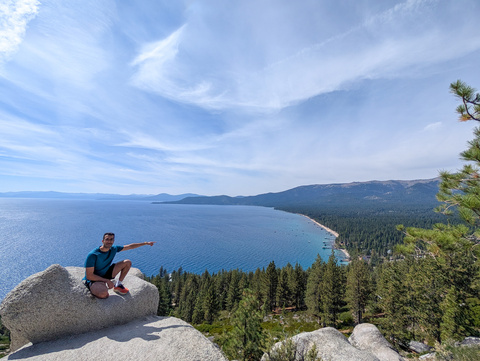
Khalid: At its core, traveling is an extremely scary and anxiety-inducing endeavor. You are stepping out of your comfort zone and engaging with structures and systems you are not familiar with. Consequently, we are prone to getting overwhelmed and bogged down by the immensity of the task.
However, I think if you go into it with a sense of adventure and know full well that things might go wrong, but that is okay.
At this point, as the world is becoming more and more insular and borders are closing down, traveling for the sake of traveling feels like a radical act. If you have the luxury and the privilege to travel, you should definitely do so. If nothing else, you get exposed to places and people that you would not otherwise have a chance to interact with.

